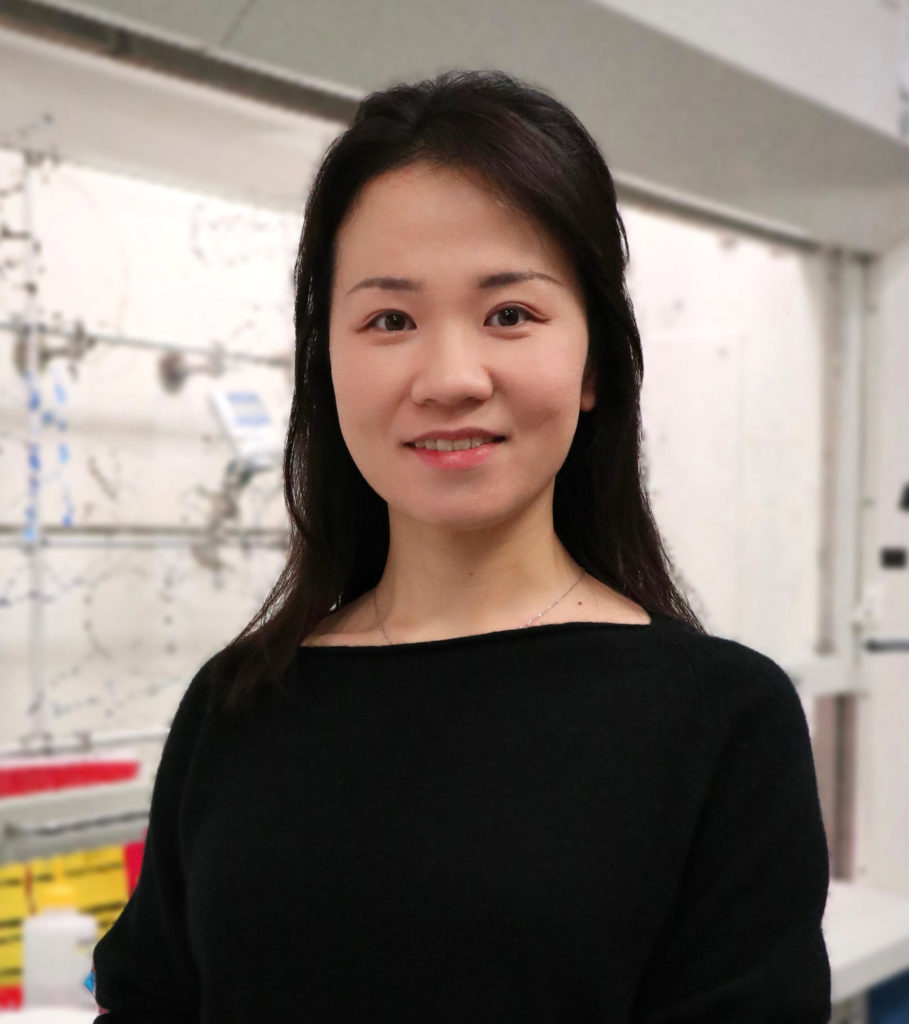
Xiwen Gong selected as Amazon Physical Science Fellow
Assistant Professor selected to collaborate with Amazon by identifying game-changing discoveries that could lead to products and services that will create a better future for the next generation.

Assistant Professor selected to collaborate with Amazon by identifying game-changing discoveries that could lead to products and services that will create a better future for the next generation.
Chemical Engineering Assistant Professor Xiwen Gong has been selected as one of three Amazon Physical Science Fellows. The fellowship provides an opportunity for early career academics in physics to collaborate with Amazon by identifying game-changing discoveries that could lead to products and services that will create a better future for the next generation.
“I am extremely thrilled to be selected as one of the Amazon Physical Science Fellows,” Gong said. “As a young girl, I was deeply amazed by the beauty and elegance of physics. My love for physics and intrinsic curiosity to understand the principles governing the world around us shaped my career as a researcher.”
“I am extremely thrilled to be selected as one of the Amazon Physical Science Fellows. As a young girl, I was deeply amazed by the beauty and elegance of physics. My love for physics and intrinsic curiosity to understand the principles governing the world around us shaped my career as a researcher.”
Xiwen Gong
Assistant Professor of Chemical Engineering
The selection process for the Amazon Physical Science Fellowship involved a three-round competition among more than 2,000 professors from around the world who were invited to identify game-changing discoveries from the past two decades that could lead to products and services that will positively impact future generations. Of the final candidates, a distinguished review board from academia and industry awarded three Amazon Physical Science Fellows a prize of $150,000 USD each.
“Professor Gong is exactly the kind of ‘big thinker’ this fellowship is meant to recognize. Her innovative research in bioelectronics is revolutionizing the way we monitor and improve human health and performance,” Anthony C. Lembke Department Chair of Chemical Engineering Sharon Glotzer commented. “We’re extremely proud of the work she is doing and are thrilled by this exciting recognition of her and her ideas by Amazon.”

The application process for the Amazon Physical Science Fellowship was designed to encourage applicants to think beyond and use existing research to develop new and innovative solutions. Amazon’s inspiration for the application process is steeped in history, based on a discovery by Heinrich Hertz in 1888 that led to radio transmission testing in a laboratory setting, building on Maxwell’s equation that was formulated more than 20 years prior. Hertz’s discovery led to game-changing experimental results that eventually inspired Guglielmo Marconi to send the first radio signals across the Atlantic Ocean in 1902, fourteen years after the experimental observations by Hertz.
Amazon created the Physical Science Fellowship to identify key scientific findings and big picture thinkers who can foster developments into engineered products and services at a fast pace, ultimately aiming to find modern-day equivalents of the Hertz experiment.
“As a researcher, it is natural to think deeply about the innovative science and physics that lies behind every major discovery. The Amazon Physical Science Fellowship encourages me to think beyond — to broaden my perspective by examining the technological impact of scientific findings, the potential challenges in translating knowledge to products and techniques, and effective ways to communicate science to the public,” Gong said. “The practice of identifying disruptive discoveries is extremely inspiring and rewarding.”